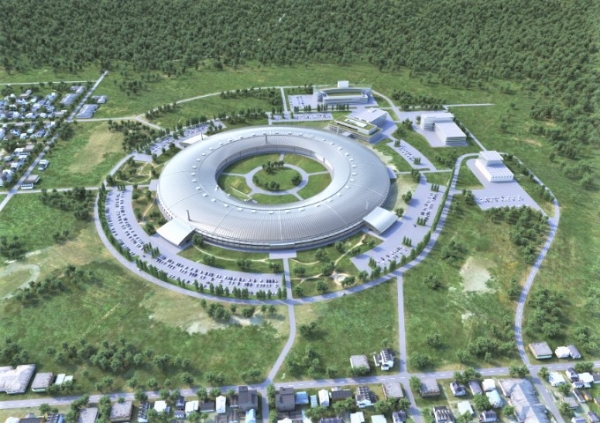
The Ministry of Science and ICT (MSI) declared that Cheongju, Ochang-eup is determined as a site for the 4th generation circular radiation accelerator. Radiation accelerator forces charged particles to pass through magnetic fields at the speed of light to generate radiation. The light generated by the accelerator is more than 100 million times brighter than the sun and is used to analyze nanostructues such as protein structure, cell division, and nanoparticles. Radiation accelerator is a symbol of cutting-edge technology as it is largely used in fundamental science researches and future industries, including biotechnology and material science. South Korea has two radiation accelerators: 3rd generation circular radiation accelerator and 4th generation linear accelerator, both in Pohang Accelerator Laboratory (PAL). The linear accelerator can derive dense and uniform particle beam with minimized energy loss. However, the accelerator needs to be very long to accelerate a larger particle and can only produce a single wavelength. On the other hand, 4th generation circular radiation accelerator can produce various wavelengths of light and is more space-efficient than the 4th linear accelerator. Moreover, the 4th generation circular accelerator is more than two times larger and the generated radiation light is hundred times brighter than the 3rd generation circular accelerator.
The construction of the 4th circular radiation accelerator was issued and resolved in Presidential Advisory Council on Science and Technology (PACST) in March 24. The MSI announced implementation plans of the accelerator on March 27, and four local bodies, Gangwon-do Chuncheon, Chungcheongbuk-do Cheongju, Jeollanam-do Naju, and Gyeongsangbuk-do Pohang submitted a letter of intent. The MSI formed a committee to choose sites for construction to evaluate factors such as geological stability, accessibility, local industries, and support from the local government. Pohang was ruled out in documentation review on May 6, as it scored 76.62, a relatively low score, due to its lack in geological stability, which takes 50% of the total score. Finally, on May 8, Cheongju was selected, scoring 90.54 in the final evaluation. Cheongju satisfied the evaulation regarding stability of the geological structure and outstood in accessibility and potential of the formation and development of relevant industries. The 4th generation circular radiation accelerator is planned to be constructed from 2022 and will start to operate in 2028.


